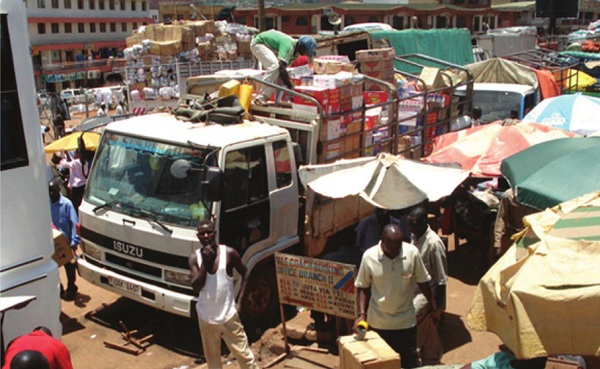
BY PETER MWAYI
October 1, 2021 marked a key milestone for trade partners South Sudan and Uganda, as the world’s youngest nation waived the requirement for entry visas for Ugandans travelling between the two countries. The move came only weeks after Uganda itself waived the requirement for South Sudan nationals to pay $50 in order to enter the country.
The move comes as a relief for thousands of Ugandans engaged in cross border trade with South Sudan. Tens of thousands of Ugandans are believed to be resident in South Sudan, mainly engaged in the country’s informal sector.
Ties between Uganda and South Sudan are longstanding and multi-faceted, dating as far back as the 1940s. The two countries share a long border traversing several ethnic groups that are severely dependent on each other. South Sudanese people have attended schools in Uganda, and many have fled across the border and sought sanctuary in the neighbouring country, escaping strife that has befallen South Sudan since 1955. Uganda has also not been immune to its own strife over the years and its citizens around the border areas have ended up across the border for refuge. These relations have been maintained to-date. Upon returning home after 2005, South Sudanese have maintained economic and social ties in Uganda. South Sudanese continue to send their children to schools in Uganda, while many have bought homes in the capital Kampala and other areas.
More recently, however, Uganda has developed deep economic and security ties with South Sudan. Besides Uganda needing to maintain peace in South Sudan in order to vent off proxy wars from elements using the neighbour as a base to launch attacks on Uganda, the two countries have strengthened commercial and socio-economic ties since after 2005.
With hundreds of millions of US dollars in oil revenue flowing into South Sudan, Ugandan traders took advantage of the lack of a formal economy or commercial sector to absorb the money and poured into Juba, the nation’s capital. Petty traders selling foodstuffs and everyday articles, motorcycle-taxi (boda-boda) drivers, carpenters, masons and medical workers joined Ethiopians and Kenyans in numbers estimated at about 5% of Uganda’s population.
Estimates suggest that in 2005–2008, official Ugandan exports to South Sudan increased from $50.5 million to $245.9 million, while informal exports jumped even more sharply from $9.1 million to $929.9 million. This surge had a significant impact on Uganda’s economy whose nominal gross domestic product was about $15 billion at this time. The economic activity was related to petty traders and labourers, and as such was dominated by people living around the border districts who cross the borders paying no attention to formalities and requirements such as the visa.
Trade between the two neighbours has not come without its own challenges. The governments from both sides have recently been engaged in finding a longstanding solution to insecurity along the Nimule-Juba road in South Sudan which has over the years been dotted with attacks on traders plying their goods from Kampala to Juba. Several drivers have been killed, goods stolen and trucks hijacked, resulting in closure of the border crossing following protests from Ugandans.
There have also been numerous reports of harassment of Ugandans in Juba especially over lack of proper documentation. Pundits have often times interpreted some of the attacks as xenophobic, yet disguised as authorities in Juba trying to establish the legal presence of Ugandans in South Sudan. Perhaps the waiver of visa requirements will put an end to this debacle.